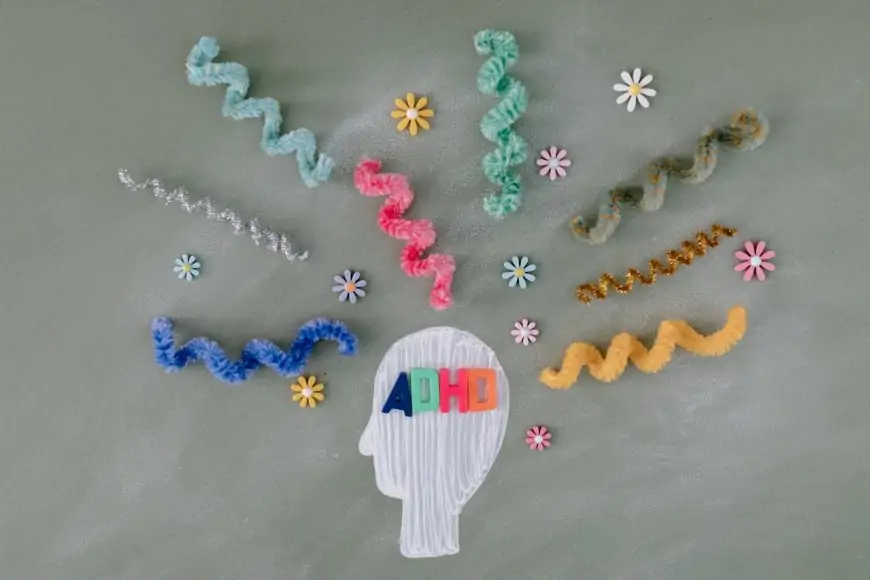Attention Deficit Hyperactivity Disorder (ADHD) is a neurodevelopmental condition that affects children and can persist into adulthood. It influences attention, impulse control, and activity levels. Recognizing and addressing ADHD early can help children develop better coping mechanisms and improve their quality of life. This article provides an overview of ADHD symptoms, diagnosis, and prevention tips to help parents and caregivers navigate this condition effectively.
Symptoms of ADHD in Children
ADHD symptoms generally fall into three categories: inattention, hyperactivity, and impulsivity.
Inattention Symptoms
- Difficulty focusing on tasks or play activities.
- Frequently making careless mistakes in schoolwork.
- Trouble following instructions or completing tasks.
- Forgetfulness and losing items necessary for tasks (e.g., pencils, books).
- Difficulty organizing daily activities.
Hyperactivity Symptoms
- Inability to sit still; constant fidgeting.
- Excessive talking, even at inappropriate times.
- Running or climbing in situations where it’s not suitable.
- Trouble playing quietly or engaging in calm activities.
Impulsivity Symptoms
- Acting without thinking about consequences.
- Interrupting others during conversations or games.
- Difficulty waiting their turn.
- Blurting out answers before questions are completed.
Diagnosing ADHD in Children
Diagnosing ADHD requires input from parents, teachers, and healthcare professionals. A diagnosis is typically made after observing behavior patterns over an extended period and ruling out other conditions.
Steps in the Diagnosis Process
- Observation and Reporting: Parents and teachers often notice symptoms first. Keep detailed records of behavior.
- Consultation with a Pediatrician: A pediatrician may conduct preliminary assessments and refer the child to a specialist.
- Comprehensive Evaluation: A psychologist, psychiatrist, or pediatric neurologist assesses the child using behavioral tests, interviews, and standardized questionnaires.
- Rule Out Other Causes: Other conditions, such as learning disabilities or anxiety, can mimic ADHD symptoms.
Early diagnosis ensures timely intervention, which can include behavioral therapy, educational support, and medication if necessary.
Prevention Tips for Managing ADHD
While ADHD cannot be prevented entirely, certain strategies can minimize its impact and promote better behavior management.
Encourage Structured Routines
- Establish clear daily routines, including consistent wake-up, mealtime, and bedtime schedules.
- Use visual schedules or charts to help children follow tasks.
Promote Physical Activity
- Engage children in regular exercise, which can improve concentration and reduce hyperactivity.
- Consider activities like swimming, martial arts, or team sports.
Healthy Nutrition
- Provide a balanced diet with limited sugar and processed foods.
- Include foods rich in omega-3 fatty acids, such as fish, nuts, and seeds, which may support brain health.
Create a Distraction-Free Environment
- Designate a quiet, clutter-free space for homework and activities requiring focus.
- Limit screen time and ensure breaks between tasks.
Use Positive Reinforcement
- Praise and reward good behavior to encourage repetition.
- Use clear and consistent consequences for undesirable actions.
Parental Involvement and Education
- Educate yourself about ADHD through books, workshops, and support groups.
- Work closely with teachers and therapists to create individualized plans for your child.
Final Thoughts
ADHD in children can present challenges, but with early diagnosis and effective strategies, its impact can be managed. Parents and caregivers play a crucial role in supporting children with ADHD by providing a structured, nurturing environment. Consultation with medical professionals and consistent use of proven techniques can make a significant difference in the child’s development and well-being.
By understanding ADHD symptoms, following diagnosis guidelines, and adopting prevention tips, families can empower children to thrive academically, socially, and emotionally.














![[18+] Adult Telegram Groups Links for India [18+] Adult Telegram Groups Links for India](https://sociallyshout.com/uploads/images/202311/image_140x98_655b7e954cd20.webp)


